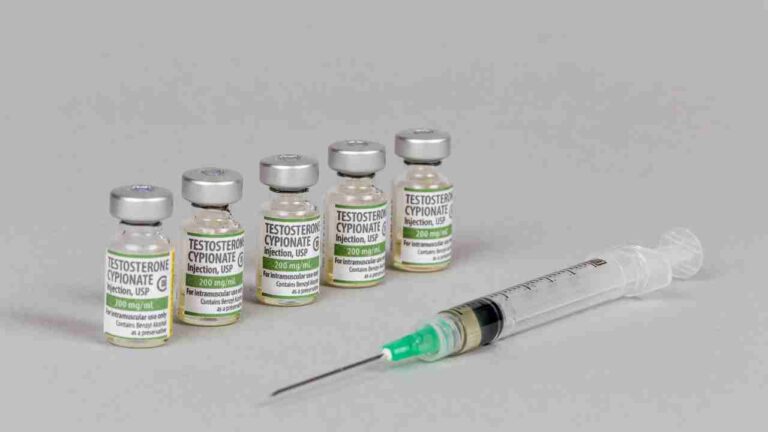Manual training equips healthcare professionals with the necessary knowledge and skills to safely handle and move patients, reducing the risk of injuries to both the healthcare provider and the patient. It teaches healthcare professionals proper lifting techniques, body mechanics and the use of assistive devices to ensure the safety and well-being of patients during transfers and movements.
By undergoing manual handling certification or manual handling refreshers, healthcare professionals are better prepared to prevent accidents, minimise the occurrence of musculoskeletal injuries and provide effective care to patients safely and efficiently. The importance of First Aid Manual Handling Training and Education lies in its ability to enhance the overall quality of patient care and promote the well-being of healthcare professionals.
The Significance of Comprehensive Training Programs for Healthcare Professionals
Comprehensive training programs for healthcare professionals hold great significance in the medical field. These programs are designed to provide healthcare professionals with the necessary skills and knowledge to perform their duties effectively.
The training programs cover a range of topics including patient care, medical procedures and safety protocols.
By participating in these programs, healthcare professionals can enhance their skills and knowledge, which can ultimately lead to better patient outcomes.
The benefits of comprehensive training programs for healthcare professionals are numerous.
Firstly, these programs help healthcare professionals stay up-to-date with medical advancements and technologies. This ensures that they are equipped with the necessary knowledge and skills to provide the best possible care to their patients.
Secondly, comprehensive training programs can help healthcare professionals identify potential risks and hazards in the workplace. This can help prevent accidents and injuries, which can ultimately lead to a safer work environment.
Lastly, these programs can help healthcare professionals improve their communication and teamwork skills, which are essential for providing quality patient care.
Continuous Education and Skill Development in Safe Manual Handling Techniques
Continuous education and skill development are crucial in ensuring safe manual handling techniques.
It is important to keep up-to-date with the latest techniques and best practices to prevent injuries and accidents.
By continuously learning and improving our skills, we can reduce the risk of workplace injuries and create a safer working environment.
There are numerous benefits to continuous education and skill development in safe manual handling techniques.
Firstly, it helps to improve our knowledge and understanding of the risks associated with manual handling. This enables us to identify potential hazards and take appropriate measures to prevent accidents.
Secondly, it helps to improve our physical abilities and techniques, making us more efficient and effective in our work.
Finally, it helps to boost our confidence and morale, which can have a positive impact on our overall job performance.
There are various programs available for continuous education and skill development in safe manual handling techniques. These can include training courses, workshops, and seminars. It is important to choose a program that is tailored to your specific needs and requirements. Investing in continuous education and skill development ensures that we are equipped with the knowledge and skills necessary to perform our jobs safely and effectively.
Challenges in Implementing First Aid Manual Handling Training and Education
Implementing First Aid Manual Handling Training and Education can present several challenges. One of the main challenges is the lack of awareness and understanding among individuals regarding the importance of such training. Many people may need to realise the potential risks and injuries that can occur due to improper manual handling techniques. This lack of awareness can make it difficult to motivate individuals to participate in the training programs.
Another challenge is the availability of qualified trainers and resources. It is crucial to have trainers who are knowledgeable and experienced in First Aid Manual Handling techniques. However, finding such trainers can be a challenge, especially in remote areas or areas with limited resources. Additionally, having access to the necessary training materials and resources can also be a hurdle, as they may not be readily available or affordable for everyone.
To overcome these challenges, it is essential to raise awareness about the importance of First Aid Manual Handling Training and Education. This can be done through various means, such as organising awareness campaigns, distributing informational materials, and conducting workshops or seminars. By highlighting the potential risks and benefits of such training, individuals can be motivated to participate and take the necessary steps to ensure their safety and the safety of others.
Furthermore, efforts should be made to train and certify more individuals as qualified trainers in First Aid Manual Handling techniques. This can be achieved by providing training programs and courses specifically designed for trainers. Additionally, collaborations with organisations and institutions that specialise in First Aid Manual Handling can help in accessing the necessary resources and materials required for effective training.
Implementing First Aid Manual Handling Training and Education can be challenging due to the lack of awareness and understanding among individuals, as well as the availability of qualified trainers and resources. However, raising awareness and providing training opportunities can overcome these challenges, ensuring that individuals are equipped with the necessary knowledge and skills to handle manual tasks safely and effectively.
Final Thoughts
Healthcare professionals should acknowledge the importance of First Aid Manual Handling Training and Education. This training ensures they are equipped with the indispensable skills and information to handle emergencies. By understanding the principles of first aid, healthcare professionals can provide immediate assistance to patients in critical conditions, potentially saving lives.
Moreover, Manual Handling Training is essential for healthcare professionals as it focuses on proper techniques for lifting, moving, and transferring patients. This training helps prevent injuries to both the healthcare professional and the patient. By learning the correct body mechanics and using appropriate equipment, healthcare professionals can reduce the risk of musculoskeletal disorders and other physical strains associated with patient handling.
Consequently, healthcare professionals should prioritise the pursuit of First Aid Manual Handling Training and Education in their practice. By doing so, they can heighten their competency to rapidly and decisively address emergencies, thus ensuring the most favourable end results for their patients. In addition, this training aids healthcare professionals in sustaining their physical well-being, ensuring they can provide uninterrupted care while maintaining their health.






